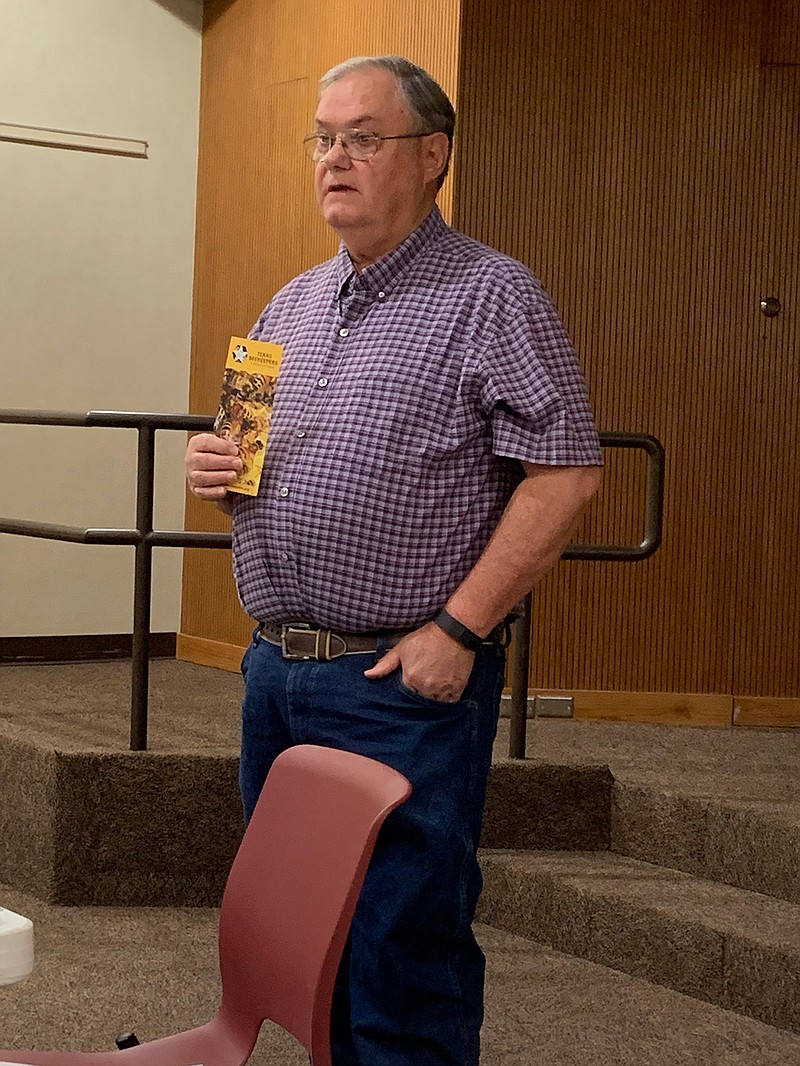The lives of honeybees are intricately woven into the lives of humans and each depend upon the other for survival, since the bees pollinate the plants that provide much of the food humans eat.
This topic, along with the importance of beekeeping, was discussed during Tuesday's meeting of Friends United for a Safe Environment. Robbie Robinson, president of the Texarkana Beekeepers Association, told those gathered at the Texarkana Public Library that the important role bees play in helping humans is being reduced because the bee population is getting smaller every year.
"Bees are very, very beneficial to us, but the problem is that bees are disappearing," Robinson said. "They have a much harder time than they did in the Colonial days."
Today's bee population is dwindling because of pesticides, parasites and poor nutrition, he said. They can also suffer from colony collapse syndrome, which can quickly kill entire hives.
"Bees are facing a real environmental problem today that they've never faced before," he said. "The United Nations is predicting in 15 or 20 years three-quarters of the world's insects will be extinct. That's due to civilization. We are branching out. A hundred and fifty years ago, the majority of the world's population lived along the oceans. Now, that's not the case. So we are destroying everything that our bugs and insects need and when they're gone, we're going to have a problem."
He added that people worry about climate change, but that it won't be an issue if the majority of the world's bees are dead.
"The insects dying and the pollinators dying, we're going to have a lot less food to eat," Robinson said. "You're not going to get almonds and pears and peaches and a lot of the things we like. Or if you can find it, it's going to be very expensive.
"The question is, I don't know what we're going to do about it. There's a lot of groups working against Monsanto and trying to fight, but they've got the money and money talks."
Robinson said that the University of Central Arkansas is conducting a study on the ability of Arkansas honey to kill harmful bacteria and that studies are also being conducted on how bee venom can kill the HIV virus and help prevent spread of the disease.
In addition, he said bee-sting therapy has been helpful for those with arthritis and multiple sclerosis.
Robinson said beekeepers can help with the bee shortage.
"For the bees, we've got good beekeepers, but there's not enough of them," he said.
The Texarkana Beekeepers Association will meet at 6 p.m. Monday in the Nelson Room of the Texarkana Public Library. They will hold a potluck and hear a presentation on bees and their medicinal benefits.
The meeting is free and open to the public.
For more information, contact Robinson at 903-277-8134 or on the Texarkana Beekeepers Association's Facebook page.

